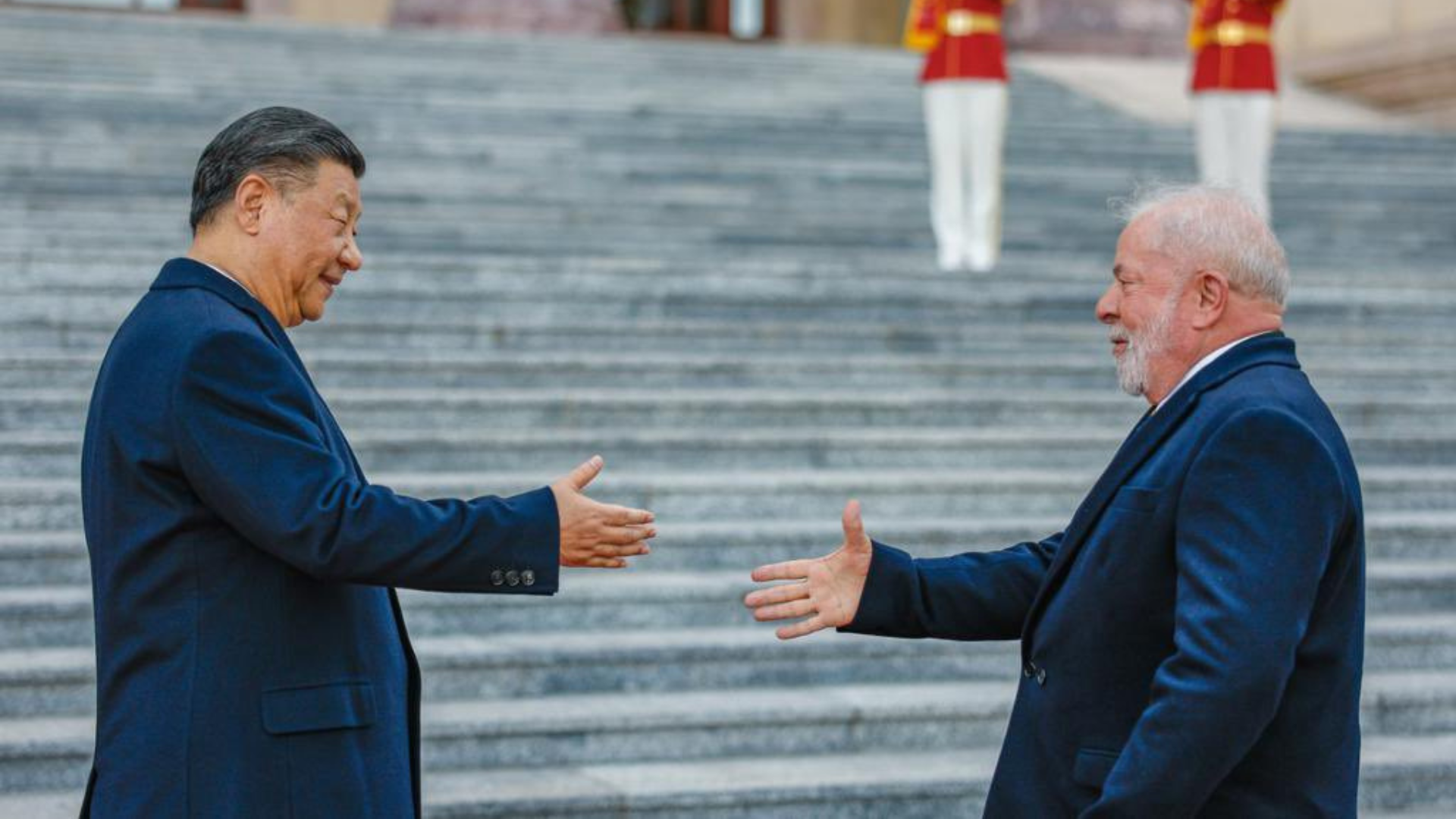
Published 14/04/2023 14:22 | Edited 4/17/2023 1:28 PM
If Xi Jinping’s visit to Russia, in March, marked what the Chinese leader himself called a “new era”, the meeting between Xi and President Lula, this Friday (14th), in Beijing, seems to accelerate and consecrate this other global order. “We are going to work to expand trade and balance world geopolitics,” declared Lula, standing next to Xi.
The commercial mission is duly accomplished. In a ceremony at the Great Palace of the People, seat of government, Brazil and China signed the largest bilateral agreement in the history of relations between the two countries. The 15 partnerships signed add up to more than R$ 50 billion, according to a projection released by the Presidency of the Republic.
The Minister of Finance, Fernando Haddad, who is part of Lula’s entourage to China, pondered that Brazil “cannot be isolated from anyone, it is too big to keep choosing a partner.” But he made it clear that dependence on US capital has harmed the country.
“We want investment from the United States in Brazil, but we are almost experiencing a moment of disinvestment. Some American companies in the past have taken the decision to leave Brazil,” said Haddad. In other words, it’s time to look for Asian resources.
But Lula’s trip to China, despite the relevance of the economic agenda, has an even greater geopolitical significance. The Brazilian was categorical and set the tone in Beijing: “The understanding that my government has of China is that we have to work hard so that the Brazil-China relationship is not merely of commercial interest. We have political interests – and we have interests in building a new geopolitics to change world governance, giving more representation to the United Nations”.
To which Xi Jinping promptly replied: “China places relations with Brazil at a priority place in our foreign relations”. Leader of a “great modern socialist country”, the Chinese president said that his government seeks “high-quality development”, “a new development paradigm”, with “a high-quality openness”, which “unlocks new opportunities for development”. Brazil and other countries”.
It is as if we are experiencing a historic transition that challenges not only US hegemony – but also the power of the G7 (the group formed by seven nations that, until two decades ago, were the richest in the world: the United States, Japan, Germany , United Kingdom, France, Italy and Canada).
What is at stake is the role that the Brics (Brazil, Russia, India, China and South Africa) will play in this new order. Back in 2001, when economist Jim O’Neill, from Goldman Sachs, coined the acronym BRIC, the idea was to draw investors’ attention to the growing potential of the so-called “emerging countries”.
But the articulation of these countries went beyond the original purposes. Although Brazil has lost strength, in the group and in the world, with the Jair Bolsonaro (PL) government, the resumption of the Brics necessarily involves Lula’s contribution.
One day, the Brazilian president openly talks about creating alternatives to the dollar in international trade. In the other, he reinforces the need to reduce asymmetries between countries. In Lula’s style, without the protocols that usually mark the statements of the Chinese Xi Jinping or the Russian Vladimir Putin, the Brics gain a charismatic and mobilizing spokesman, worthy of these times.
Since 2020, the GDP of the Brics has surpassed the GDP of the G7, an extraordinary milestone in itself. There seems little time left for the bloc to also lead the geopolitical scene and increasingly influence the international community.
In a recent statement to DW, Günther Maihold, from the German Institute for International and Security Affairs (SWP), summed up the fate of the Brics: “The founding legend of emerging economies has faded. The BRICS countries are experiencing their geopolitical moment”.
There is a consensus that the war in Ukraine is a challenge to this transition. China and Brazil agreed to try to make viable, jointly, a proposal for peace, without the interference of the United States and NATO (North Atlantic Treaty Organization). If that proposal eventually succeeds, and if initiatives such as the creation of a commercial currency for the Brics get off the ground, the White House’s margin of influence will be the smallest in 80 or 90 years.
Source: vermelho.org.br

